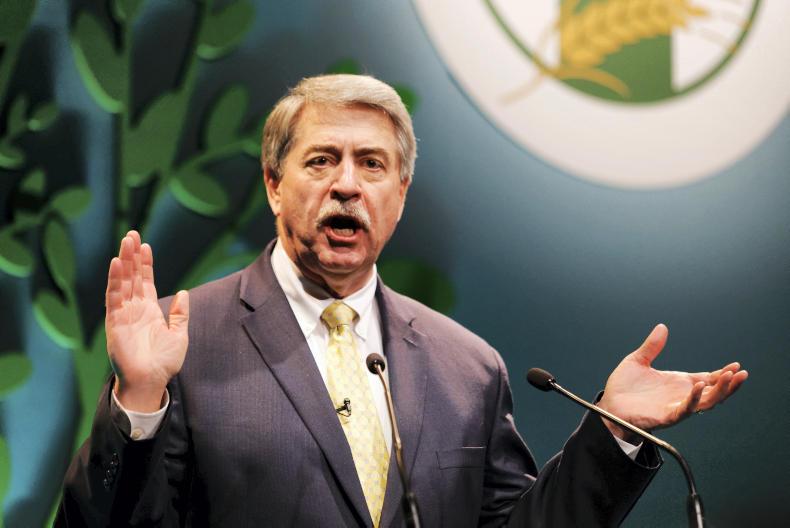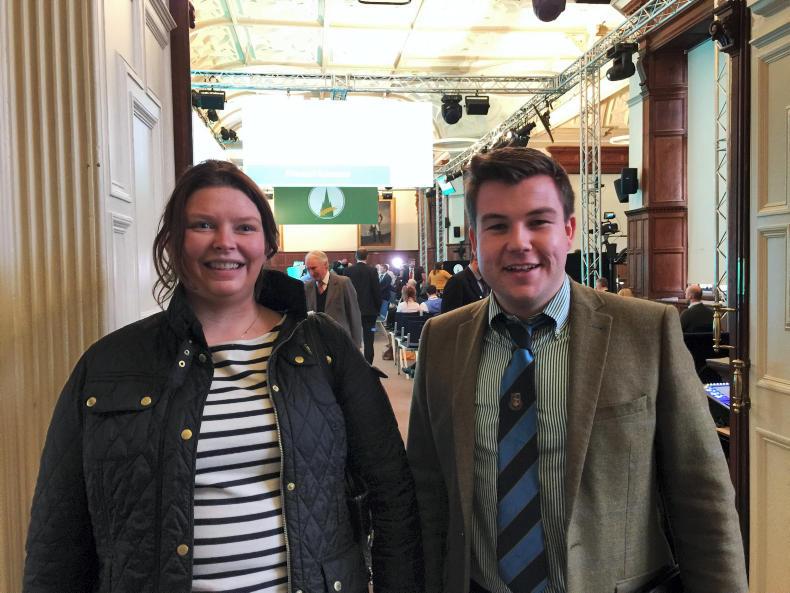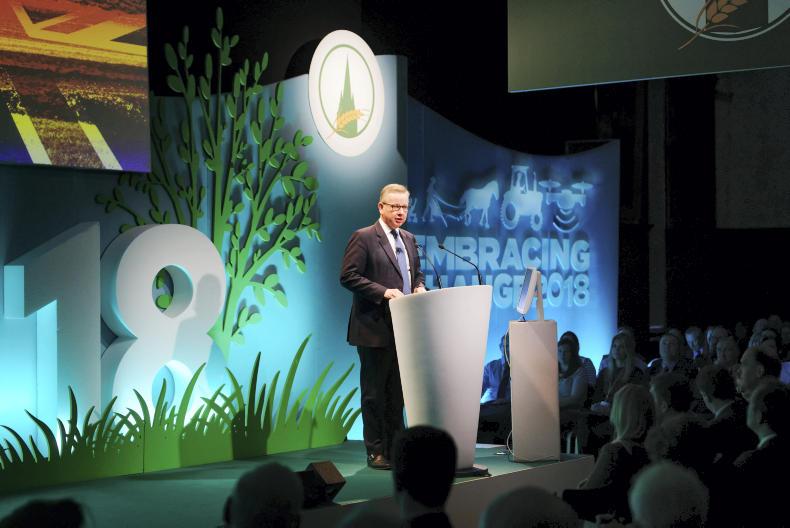Trade in a post-Brexit environment dominated the political session at the Oxford Farming Conference last week. The USDA Under Secretary for Trade, Ted McKinney, told the conference that the US would like to trade more with the UK, but that it’s a “two-way street”.
He claimed that the US is one of the most open countries in the world in which to do trade.
“Certainly, there are high standards and equivalencies that need to be reached. In the case of many of you, we’re working on that,” he said. “But ‘no’ is not the normal answer from the US. If those high bars from animal welfare and the environment and food safety orientations are met, welcome. We’re hoping for the same from you.”
However, high standards in UK agriculture will not be compromised for the benefit of trade, DEFRA secretary Michael Gove said.
“It would be foolish for us to lower animal welfare or environmental standards in any trade deal, and in so doing undercut our own reputation for quality,” said Gove.
“We will succeed in the global marketplace because we are competing at the top of the value chain, not trying to win a race to the bottom,” he stressed.
Meanwhile, the message from the EU on trade was that a two-year transition period will not be enough time to reach an agreement. Any deal will have to be ratified by the European Parliament as well as over 35 national and regional parliaments.
Representing the European Parliament via videolink, Italian MEP Paolo De Castro said that “sanitary and phytosanitary rules might become a particularly sensitive issue for consumers and the public opinion”.
To deal with the estimated €10.2bn gap in the EU budget once the UK leaves, DeCastro said work is underway to try and fill that.
“The EU is working on three main ideas: increasing the contribution of the remaining 27 EU member states, decreasing the expenditure and the expanding of the EU’s own financial resources.”
In Michael Gove’s “Farming for the next generation” speech, he promised that farmers would receive their direct payments as usual in 2019 and during a transition period with Europe.












SHARING OPTIONS